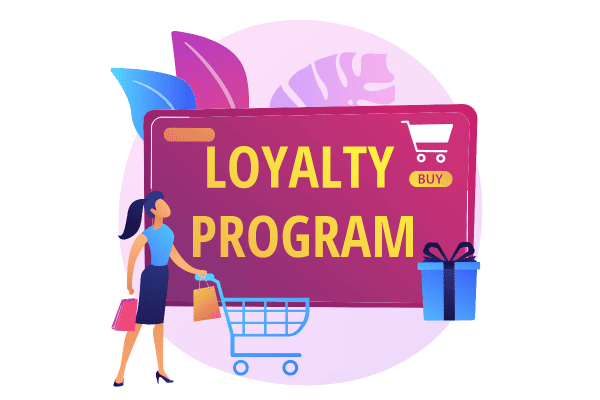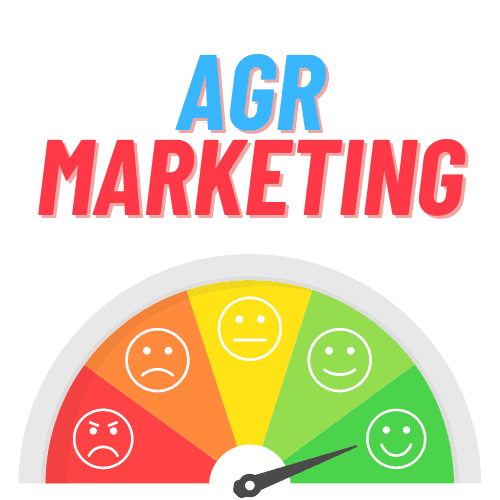Which Best Describes Relationship Marketing? (2023)
Unlocking the Power of Relationship Marketing: Benefits and Strategies
Which Best Describes Relationship Marketing? Relationship marketing, or communications, is all about building long-term connections with your customers. It’s not just a one-time sale; it’s about creating loyalty and repeat business through personalized interactions.
This approach offers numerous benefits for individual sales and overall product success.

Why bother, you ask? Well, relationship marketing has some profound benefits. For starters, it leads to increased customer satisfaction.
When you understand your customers’ needs, interests, and concerns, you can tailor your communications and products to meet their expectations. This keeps them happy and coming back for more. Relationship marketing aims to create a strong customer bond through relevant content and activities. This is the key to success in building long-term relationships.
But that’s not all! Relationship marketing also boosts customer retention rates, which is one of the key benefits. By fostering solid relationships with your audience, you create a bond that goes beyond the competition, increasing sales.
And let me tell you, having loyal customers gives your business a natural edge in the market and enhances product communications.
So if you want to stand out from the crowd and keep those sales flowing in, customer acquisition through meaningful communications is where it’s at. Get ready to dive deep into building relationships with new customers and watch your brand thrive!
Now let’s explore how relationship marketing works its magic…
The difference between relationship marketing and other types
Relationship marketing, a strategy focused on building long-term customer relationships, differs from other forms of marketing in its approach to customer acquisition, sales, and brand building. It addresses customer concerns and aims to foster loyalty.
- Relationship marketing prioritizes building individualized customer connections, fostering loyalty, and establishing a personal bond. It focuses on building a solid brand and creating valuable content to provide customers with relevant information rather than solely focusing on completing transactions.
- Unlike traditional marketing, which often centers around one-time transactions, relationship marketing emphasizes long-term customer engagement. Its goal is cultivating ongoing relationships with existing customers beyond the initial purchase. By prioritizing the connection between the brand and its customers, relationship marketing focuses on creating valuable content and finding innovative ways to engage with existing customers.
- Relationship marketing involves ongoing communication and personalized experiences, differentiating it from transactional or product-focused approaches. It goes beyond promoting a product or service by engaging with customers through various channels, creating a strong brand connection, and delivering valuable content. This way, relationship marketing adds value to the customer experience and builds long-term loyalty.
- While other types of marketing may focus on a broad audience, relationship marketing aims to understand and cater to the specific needs of individual customers. By collecting data and insights about their brand preferences, content behaviors, and interests, marketers can tailor their strategies to align with their customers’ needs.
Case study: Successful implementation of relationship marketing
XYZ Company successfully implemented relationship marketing strategies significantly impacted its brand and content. By focusing on building solid relationships with their customers, they were able to achieve remarkable results.
Here are some key highlights from XYZ Company’s successful implementation of relationship marketing, with a strong focus on retaining existing customers and building the brand.
- Increased customer loyalty: Through their relationship marketing efforts, XYZ Company fostered a sense of loyalty among their customers. By consistently engaging with them and providing personalized experiences, they created a strong bond that kept customers returning for more.
- Improved customer satisfaction ratings: One of the main goals of relationship marketing is to enhance customer satisfaction. XYZ Company achieved this by offering personalized recommendations based on individual preferences. This approach made customers feel valued and resulted in higher satisfaction ratings.
- Strengthened relationships with existing customers: Regular follow-ups and tailored offers were crucial in maintaining XYZ Company’s relationships with its existing customer base. By staying connected and addressing their needs, XYZ Company encouraged repeat purchases and increased customer lifetime value.
- Boost overall revenue: The successful implementation of relationship marketing ultimately significantly boosted XYZ Company’s revenue. They created a loyal customer base that generated consistent business by building long-term relationships rather than solely pursuing individual sales.
Critical strategies for implementing relationship marketing
Building trust is crucial in relationship marketing as it fosters long-term customer connections. By establishing a foundation of trust, businesses can create loyal customer relationships beyond one-time transactions.
Trust can be built through consistently delivering quality products or services and reliable customer support.

Personalization is vital in implementing effective relationship marketing strategies by tailoring experiences to individual preferences. Customers appreciate when businesses understand their unique needs and interests.
This can be achieved by collecting data on customer preferences and using it to customize communications, offers, and recommendations. Personalized interactions make customers feel valued and strengthen their bond with the brand.
Effective communication channels such as email newsletters or social media platforms help maintain regular contact with customers.
These channels provide opportunities to share updates, promotions, and valuable content that keeps customers engaged. Businesses can nurture relationships over time by connecting with customers through various touchpoints.
Utilizing customer data analysis as part of a relationship marketing strategy allows businesses to understand better their target audience’s needs and preferences for more targeted interactions.
Companies can gain insights into what drives their customers’ decision-making process. This information enables them to tailor their offerings and messaging to match customer expectations in their relationship marketing strategy.
Building long-term customer relationships as the core strategy
Prioritizing long-term relationships over short-term gains is crucial for businesses that establish loyal customer bases contributing to sustainable growth.
Companies can foster stronger connections with their customers by investing time and effort into understanding customer needs and preferences. This enhances customer satisfaction and increases the likelihood of repeat purchases and word-of-mouth recommendations.
Exceptional customer service is a crucial part of any relationship marketing strategy. It plays a pivotal role in building trust and loyalty with customers.
When businesses go above and beyond to promptly address any issues or concerns, it leaves a lasting positive impression on consumers.
This level of personalized attention helps create a sense of belonging, making customers more likely to choose the same company for future purchases.

Implementing loyalty programs or rewards systems further encourages repeat business and strengthens long-term relationships.
Such initiatives incentivize existing customers to continue patronizing the company while attracting new customers.
Loyalty programs can take various forms, such as point-based systems, exclusive discounts, or VIP perks.
In today’s technology-driven world, businesses should leverage technology to enhance their focus on building customer relationships. Utilizing chatbots on websites or social media platforms allows companies to engage with customers quickly, providing immediate assistance and support.
Personalized email marketing campaigns tailored to individual preferences can help nurture relationships by delivering relevant content directly to consumers’ inboxes.
To summarize, relationship marketing revolves around building long-term customer relationships as the core strategy for sustainable growth.
By effectively prioritizing these relationships through exceptional customer service, loyalty programs, and leveraging technology, businesses can cultivate loyal customers who continue purchasing and become advocates for the brand.
Increasing customer retention through feedback and engagement
Regularly seeking feedback from customers is crucial for any business. By actively listening to their opinions, companies can identify areas for improvement and demonstrate a commitment to meeting their needs.
Engaging with customers through social media platforms or online communities creates opportunities for dialogue and relationship building, fostering a sense of loyalty.
To enhance customer loyalty, businesses can provide existing customers with personalized offers or exclusive perks. This incentivizes them to stay loyal to the brand, knowing they are valued and appreciated.
Offering proactive customer support demonstrates care for the customer’s experience. By promptly addressing their concerns and providing assistance when needed, businesses increase the likelihood of customers remaining loyal.
In relationship marketing, feedback is vital in understanding customer preferences and expectations. It helps businesses tailor their products or services to suit the needs of their target audience better.
Through customer interactions, companies gain valuable information about what resonates with them and how they can continuously improve.
For example:
- Conducting surveys or implementing feedback forms allows businesses to gather insights directly from their customers.
- Engaging in conversations on social media platforms enables businesses to connect with existing customers personally, fostering a solid customer relationship.
- Providing exclusive discounts or early access promotions rewards existing customers for their loyalty.
- Offering 24/7 customer service support ensures that existing customers receive immediate assistance whenever they require it.
By increasing customer retention through feedback and engagement, businesses can build strong relationships with their audience while fostering brand loyalty.
Doing so creates an environment where both parties benefit – the company gains long-term customers while customers feel valued and satisfied with their experiences.
Now let’s explore how this customer relationship approach applies specifically within the context of Fenty Beauty…
Demand Generation Strategies for Quality Leads in Relationship Marketing

In relationship marketing, the focus is on nurturing long-term connections with customers. To achieve this, businesses need effective demand-generation strategies that attract quality leads. Here are some key tactics to consider:
- Developing targeted marketing campaigns: Businesses can attract individuals who align with their brand’s values and offerings. This approach ensures that the leads generated are more likely to become loyal customers.
- Utilizing referral programs: Satisfied customers can be powerful advocates for a brand. Implementing referral programs encourages them to refer others, resulting in high-quality leads. Word-of-mouth recommendations from trusted sources often carry more weight and increase the chances of converting leads into customers.
- Leveraging social media advertising: Social media platforms provide an opportunity to reach a wider audience while targeting specific demographics relevant to a business’s products or services. Through strategic advertising campaigns, companies can generate interest and capture the attention of potential customers interested in forming lasting relationships.
- Collaborating with influencers or industry experts: Partnering with influencers or industry experts can significantly enhance brand visibility and attract qualified leads. These individuals have established credibility within their respective fields and can effectively promote products or services to their followers. Their endorsement is valuable, increasing the chances of attracting engaged prospects.
By implementing these demand-generation strategies, businesses can strengthen their relationship marketing efforts and cultivate meaningful connections with quality leads. Adopting these tactics based on your target audience and industry dynamics is crucial for optimal results.
Conclusion
Understanding the essence of relationship marketing is crucial for businesses looking to build long-term customer relationships and increase customer retention.
Relationship marketing differs from other types of marketing by focusing on developing strong connections with customers rather than solely focusing on transactions.
Successful implementation of relationship marketing can be seen through various case studies where businesses have effectively built loyal customer bases.
By implementing key strategies such as personalized communication, offering exceptional customer service, and creating meaningful engagement opportunities, companies can foster trust and loyalty among their customers.
One core strategy in relationship marketing is building long-term customer relationships. This involves going beyond one-time transactions and prioritizing ongoing interactions with customers.
By consistently delivering value, addressing their needs, and providing personalized experiences, businesses can cultivate strong connections that lead to repeat purchases and brand advocacy.
Another critical aspect of relationship marketing is increasing customer retention through feedback and engagement. Actively seeking customer feedback allows businesses to understand their preferences better and make necessary improvements.
Engaging with customers through social media platforms, email newsletters, or loyalty programs helps maintain a continuous dialogue that strengthens the relationship over time.
Demand generation strategies are vital in relationship marketing by attracting quality leads. By utilizing targeted advertising campaigns, content marketing efforts, and referral programs, businesses can generate interest from potential customers who are more likely to engage in long-term relationships.
In conclusion, understanding the essence of relationship marketing involves recognizing its distinctiveness from other forms of marketing. It requires implementing key strategies like building long-term customer relationships and increasing customer retention through feedback and engagement.
By adopting these approaches and continuously nurturing customer relationships, businesses can drive growth and create loyal brand advocates.
FAQs – Which Best Describes Relationship Marketing
How does relationship marketing differ from traditional marketing?
Relationship marketing focuses on building long-term customer connections rather than solely on transactions like traditional marketing.
What are some critical strategies for implementing relationship marketing?
Some key strategies for implementing relationship marketing include personalized communication, exceptional customer service, creating meaningful engagement opportunities, and actively seeking customer feedback.
How can businesses build long-term customer relationships?
Businesses can build long-term customer relationships by consistently delivering value, addressing customer needs, providing personalized experiences, and prioritizing ongoing interactions beyond one-time transactions.
How does relationship marketing increase customer retention?
Relationship marketing increases customer retention by actively engaging with customers through feedback channels and social media platforms. Businesses can encourage repeat purchases and foster loyalty.
What are demand generation strategies in relationship marketing?
Demand generation strategies in relationship marketing involve attracting quality leads through targeted advertising campaigns, content marketing efforts, and referral programs to establish strong connections with potential customers.
We’re reader-supported. We may earn an affiliate commission when you buy through links on our site.

Angus Robertson is an authority in online marketing, affiliate marketing, and Search Engine Optimization (SEO). With an innate passion for the digital world, he has spent the last two decades assisting businesses in amplifying their online presence and boosting profitability.







